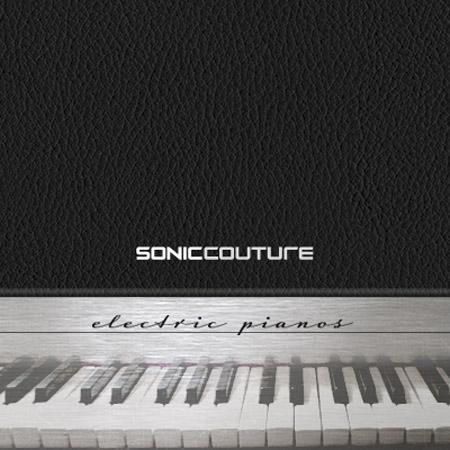Review: Soniccouture Electric Pianos for Live
MSRP: $89, Soniccouture A proper electric piano is not the cheapest or easiest thing in […]

MSRP: $89, Soniccouture
A proper electric piano is not the cheapest or easiest thing in the world to acquire and keep in good, working condition, especially a classic like the Fender Rhodes Stage 73 or the Wurlitzer 200A. In an attempt to address this problem, Ableton has teamed up with the botique software instrument designers at Soniccouture for Electric Pianos, a Live-only instrument that aims to offer those low on funds access to pristine electric piano sounds.
Let’s just get this out of the way: No $89 piece of software is going to sound exactly like a real Rhodes or Wurlitzer piano in perfect condition, in an acoustically interesting room, with high-quality recording equipment (most likely being played by a professional). It’s just not going to happen. But what Electric Pianos does manage to deliver is access to a number of clean, entirely in-tune presets that get pretty damn close. The basics offer some unadulterated electric piano goodness, with access to simple parameter adjustments like “Tone,” “Bite,” “Reverb,” “Comp,” “Cabinet,” “Room,” “Delay,” “Tremolo,” and more depending on the particular patch you’ve brought up. These knobs (which are all, of course, MIDI-assignable) allow you to approximate your sounds rather quickly, and you can usually take the edge off or lather more effects and distortion on a particular sound with just a few turns of the dials. Digging further into the signal processing, you find that, in addition to the various proprietary objects the instrument utilizes, a lot of these effects and adjustments are simply stock Ableton EQs, compressors, and reverbs set to specific parameters. Thankfully, mostly all of the vital aspects of these individual objects can be changed, allowing for the user to have complete control over nearly every aspect of the sound and therefor rendering the patches that much more personal.
The 70 different Instrument Racks that come with Electric Pianos are divided into two categories: “Full” and “Lite.” The “Full” versions are more realistic sounding, but require more processing power (still really not that much overall), while their “Lite” counterparts are a bit easier on your CPU. There are even a good amount of preset patches that start off with a funkier, less-traditional sound, whether its a tape-delayed Rhodes or a Wurly rendered into an ambient mass. Unfortunately, these presets can be a touch kitschy for the most part, or require more work to finesse than they may be worth.
Overall, Electric Pianos is a solid software instrument. It’s versatile, it’s easy to use, and it’s light on your computer and wallet. If you’re looking for a piece of software to emulate Fender Rhodes and Wurlitzers with the most realistic and nuanced of sounds, then this is probably not for you. But if you’re looking for a high-quality basis of electric piano options to implement seamlessly into your Ableton rig, this is likely your best bet.
You can check out audio samples from Electric Pianos below.

